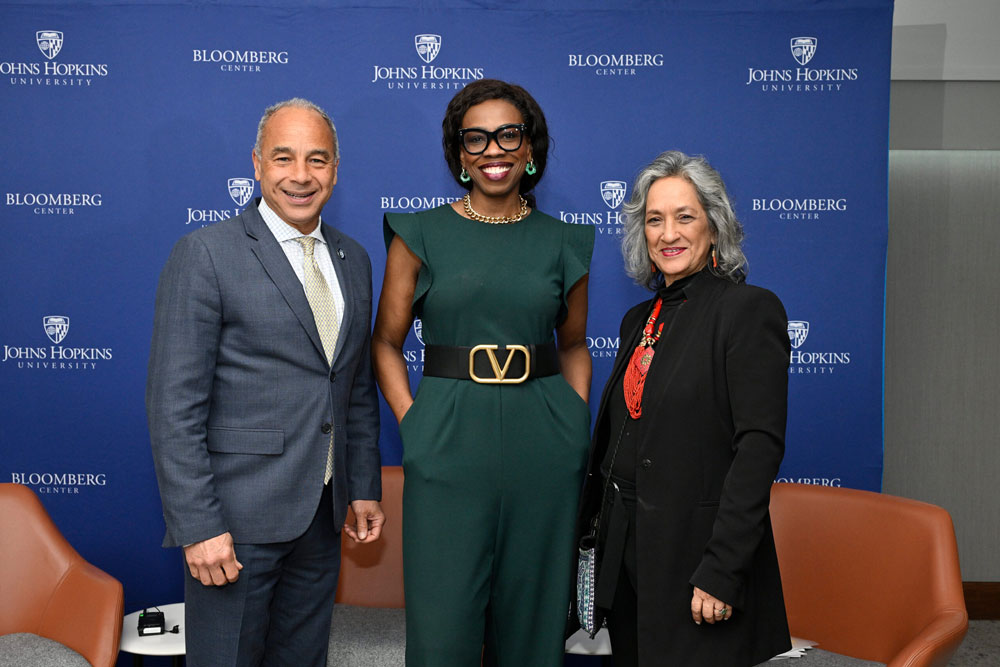A Conversation with Farida Shaheed, UN Special Rapporteur on the Right to Education
May 10, 2024
In a discussion livestreamed to a university-wide audience, Farida Shaheed, the United Nations Special Rapporteur on the Right to Education, spoke at the Johns Hopkins Bloomberg Center on May 10, making the case that access to high-quality education is a human right that not only greatly benefits individuals, but also uplifts entire communities.

Joining Shaheed in the discussion were Christopher Morphew, dean of the Johns Hopkins University School of Education; and Chiedo Nwankwor, vice dean for education and academic affairs at the Johns Hopkins School of Advanced International Studies. Ashley Rogers Berner, director of Johns Hopkins Institute for Education Policy, provided the introductory remarks for the event.
Shaheed noted a growing understanding around the world of the need for quality education that is not just accessible and affordable, but also adaptable to local needs and accountable to community stakeholders. She acknowledged that there is a measure of skepticism on how much impact the UN can have in achieving these goals. “But if you didn’t have the UN, you’d have to invent it,” she said. “Imperfect as it is, it’s the only forum in which the whole world can come together to solve these problems.”
Shaheed emphasized that there is no inherent conflict between respect for cultural differences and respect for human rights, especially since every culture evolves with time. She stated: “Culture is often used as an excuse to not uphold human rights—to maintain certain traditions that benefit a few but ignores the rights of many others who are disadvantaged. But culture doesn’t exist in a vacuum. Cultural rights and human rights work together and are very closely related.”
Education is the right to lifelong learning,” she said. “It’s the right to know, the right to do, the right to be, and the right to live together in peace with your fellow humans.
Farida Shaheed, UN Special Rapporteur on the Right to Education
Later in the discussion, Shaheed cited an example to illustrate this point: a parent who decides that their daughter should not attend school because they don’t believe that girls belong in school. Such a parent might be basing their decision on local culture, but they are, in fact violating their daughter’s right to live a more productive and fulfilling life.
“Education is the right to lifelong learning,” she said. “It’s the right to know, the right to do, the right to be, and the right to live together in peace with your fellow humans. That is the purpose of education.”
Farida Shaheed, a Pakistani citizen, took office as the UN Special Rapporteur on the Right to Education in August 2022. She is a sociologist and the executive director of Pakistan’s leading gender justice organization, Shirkat Gah - Women’s Resource Centre.
Widely published, and the recipient of several international and national human rights awards, Shaheed’s research and work as a development consultant/practitioner have been dedicated to promoting people’s rights, in particular marginalized groups such as women, persons of non-binary identities, those living with disabilities, religious and ethnic minorities, and the economically marginalized. She is also a former member of Pakistan’s National Commission on the Status of Women and served as the UN Special Rapporteur in the field of cultural rights from 2009 to 2015.